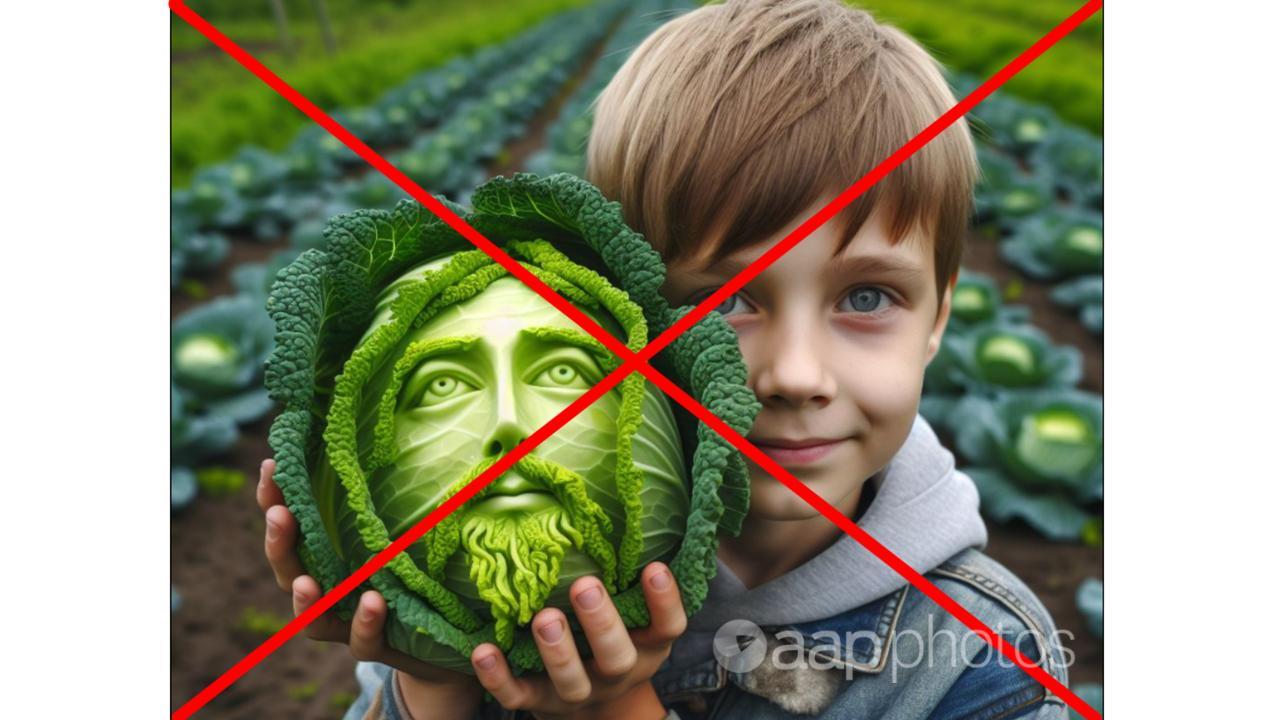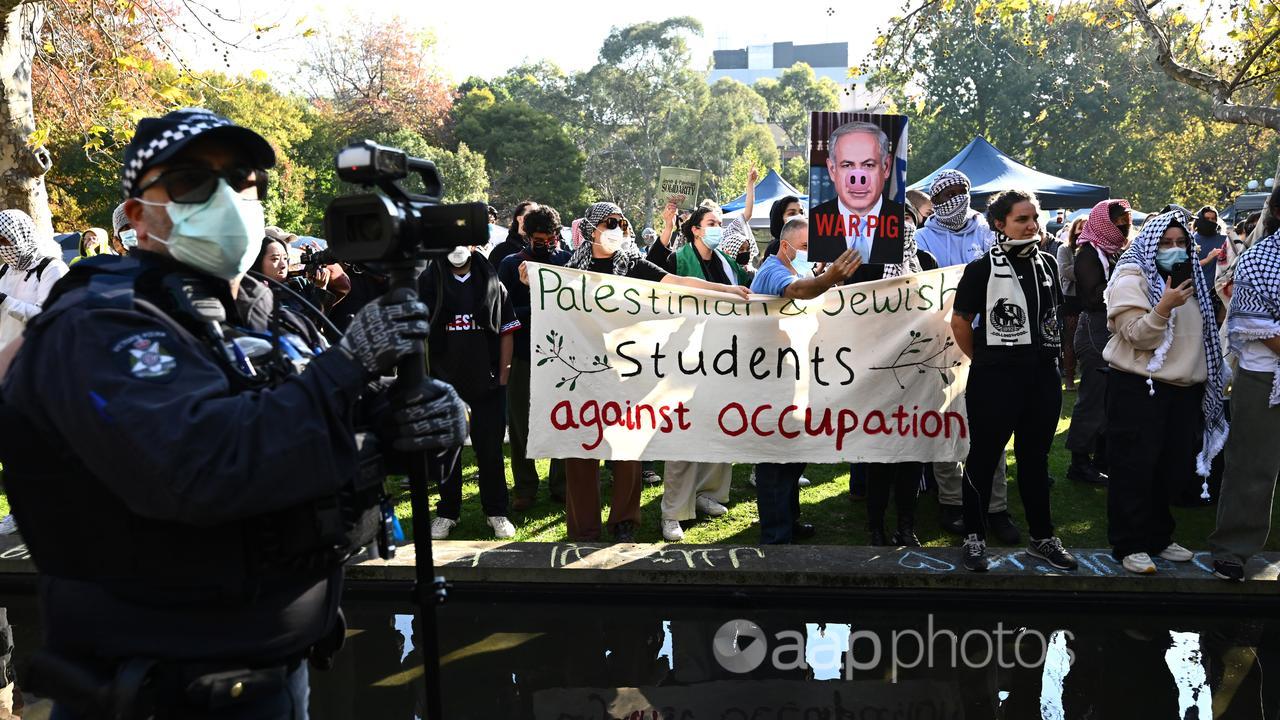Facebook accounts are sharing photorealistic images allegedly showing real people, sculptures and other scenes.
But the images are not real. They have been generated using artificial intelligence (AI) technology.
The motives of those who post such images are unclear. However, experts told AAP FactCheck people should be wary of engaging with the content.
Among the AI content going viral are eccentric portraits of a Christ-like figure made from prawns or other shellfish, a phenomenon bemused users have dubbed “Shrimp Jesus“.
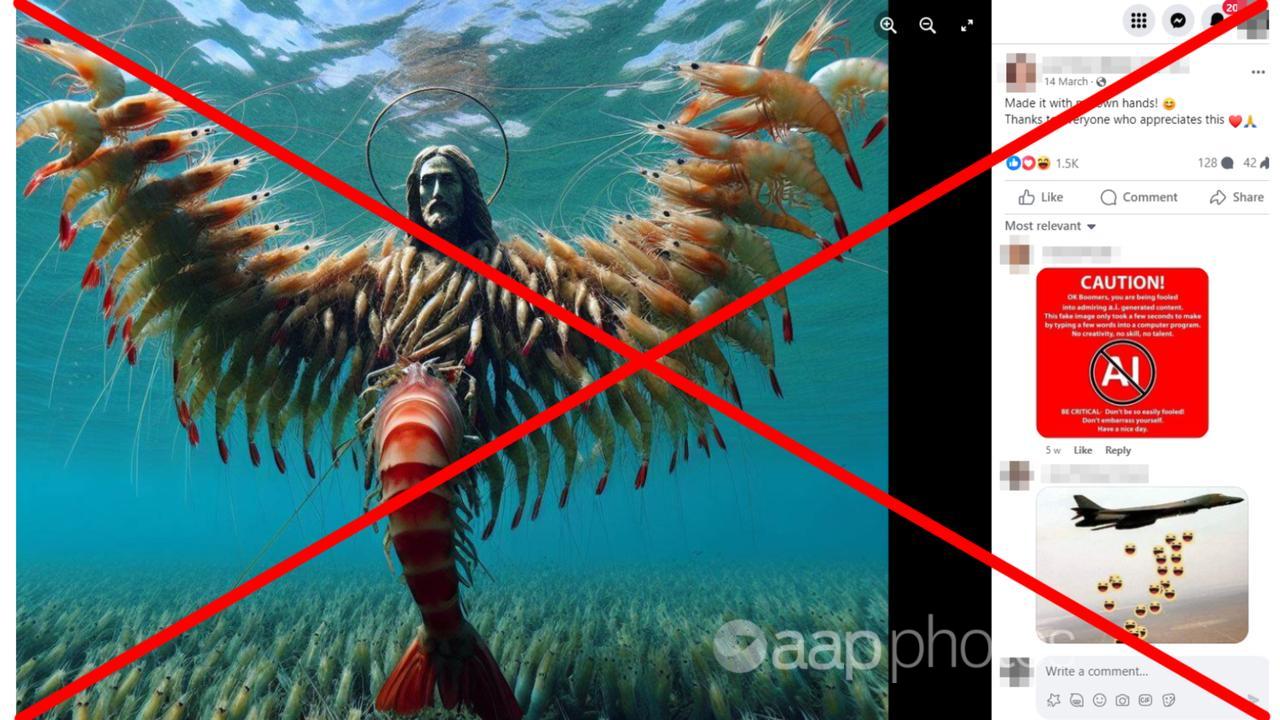
Other images appear to be breathtaking amateur arts and crafts including rock sculptures, wooden cars and sand sculptures.
The posts’ captions feature similar wording, usually a variation on “I made this with my own hands”.
Another common theme is claimed supercentenarians celebrating their birthdays with cake.
However, the supposed ages of the above examples all exceed that of the current world’s oldest person, 117-year-old Maria Branyas Morera.
While the weird and wonderful creations may look like the result of hours of meticulous concentration, they were created in seconds with the click of a button.
A March 2024 study from the Stanford Internet Observatory found some pages posting AI-generated images had attempted to get users to divulge personal details or buy non-existent products.
Some were posting the content via hacked accounts, the researchers found.
The study also found religious themes were popular because they appealed to users worldwide.
Many Facebook users are clearly unaware the images are fake.
“Amen and congratulations young man,” reads one comment beneath an AI-generated image of a child with a potato-based figure of Jesus.
Another comment on the same post reads: “So amazing. God bless you”.
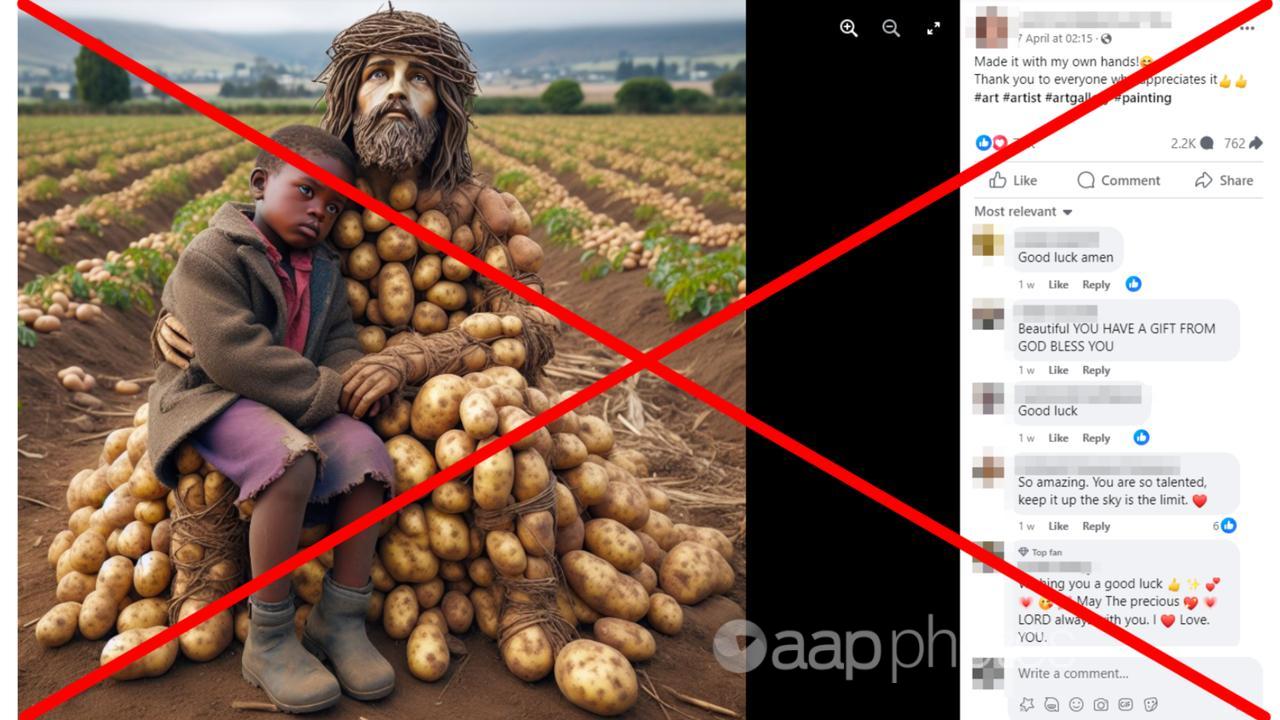
Deciphering the intent of the posts isn’t always straightforward, said Dan Halpin, the CEO of Sydney-based cyber investigations firm Cybertrace.
“In my experience, such tactics are typically part of broader strategies aimed at either monetisation through clicks and affiliate marketing, or audience building for potential future use…” Mr Halpin told AAP FactCheck.
AAP FactCheck attempted to contact some of Facebook’s most prolific AI-generated content pages but did not receive any responses.
None of these pages have disclaimers warning fans the images are fake.
Some of the AI-generated images include flaws that reveal their digital origins, such as malformed fingers or indecipherable writing on birthday cakes.
Jeannie Paterson, from the University of Melbourne’s Centre for AI and Digital Ethics, said the rapid evolution of generative AI had made it tougher to spot a fake image from a real photo.
“On a casual viewing, many are indistinguishable,” Professor Paterson told AAP FactCheck.
“AI-generated images have improved dramatically and seem likely to continue to do so.”
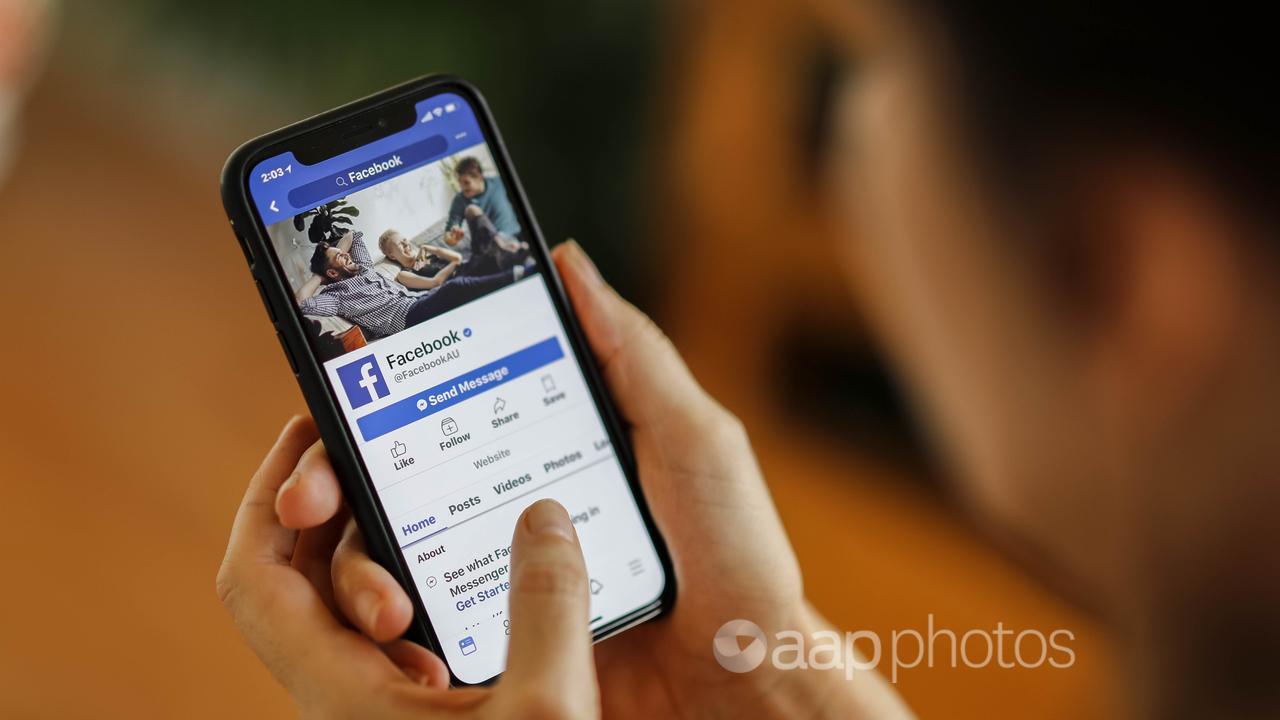
AAP FactCheck has shared a video showing social media users how to spot AI images.
Facebook’s parent company, Meta, has announced plans to label video, audio and images as “Made with AI” when it detects AI content or when users disclose that they’ve uploaded AI-generated material.
Social media users who come across AI-generated spam are advised to either report it or ignore it.
The Verdict
The claim that incredible works of art, stunning cakes and intricate sand sculptures have been pictured on social media is false.
The images have been generated using artificial intelligence technology.
False – The claim is inaccurate.
AAP FactCheck is an accredited member of the International Fact-Checking Network. To keep up with our latest fact checks, follow us on Facebook, Twitter and Instagram.
All information, text and images included on the AAP Websites is for personal use only and may not be re-written, copied, re-sold or re-distributed, framed, linked, shared onto social media or otherwise used whether for compensation of any kind or not, unless you have the prior written permission of AAP. For more information, please refer to our standard terms and conditions.

